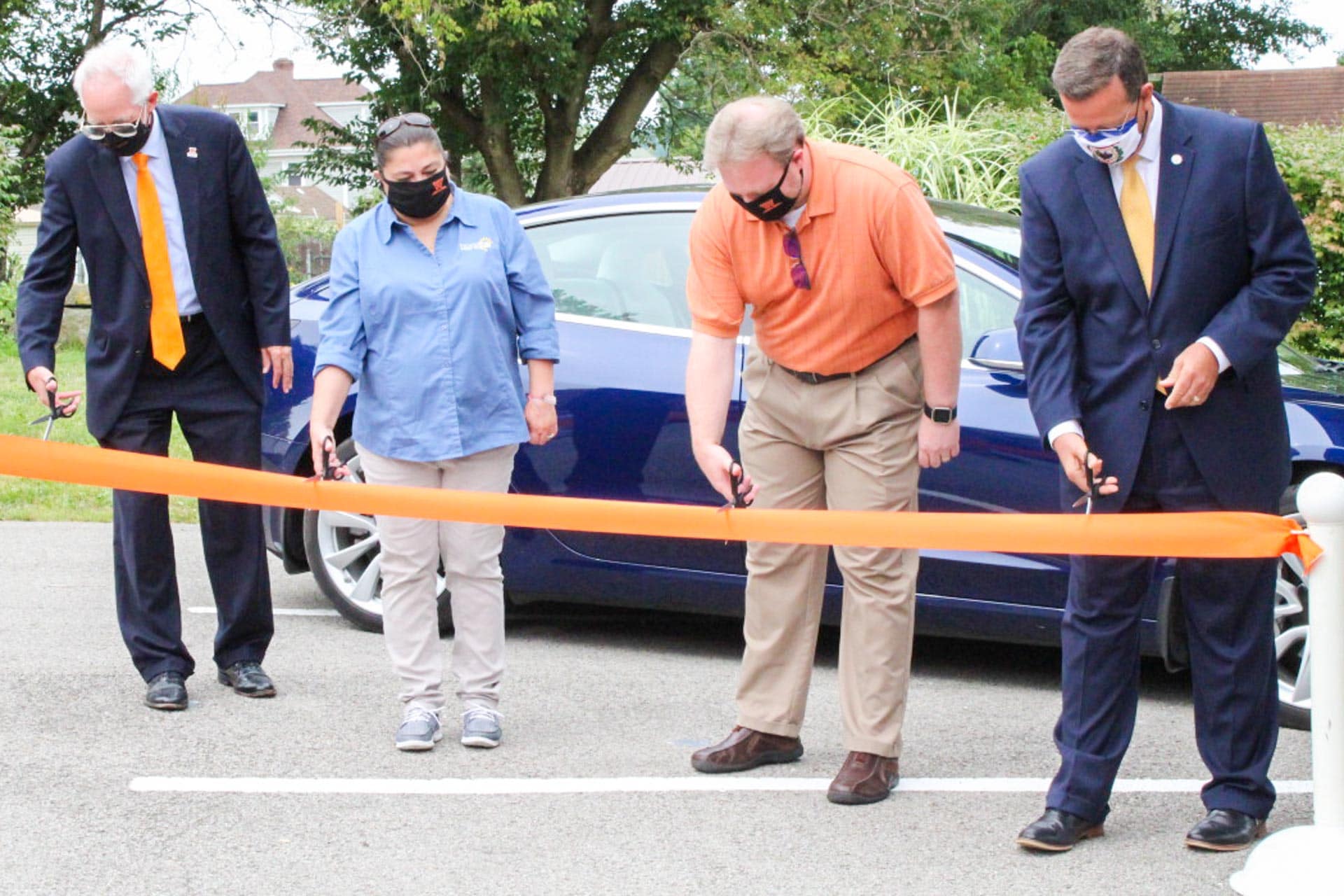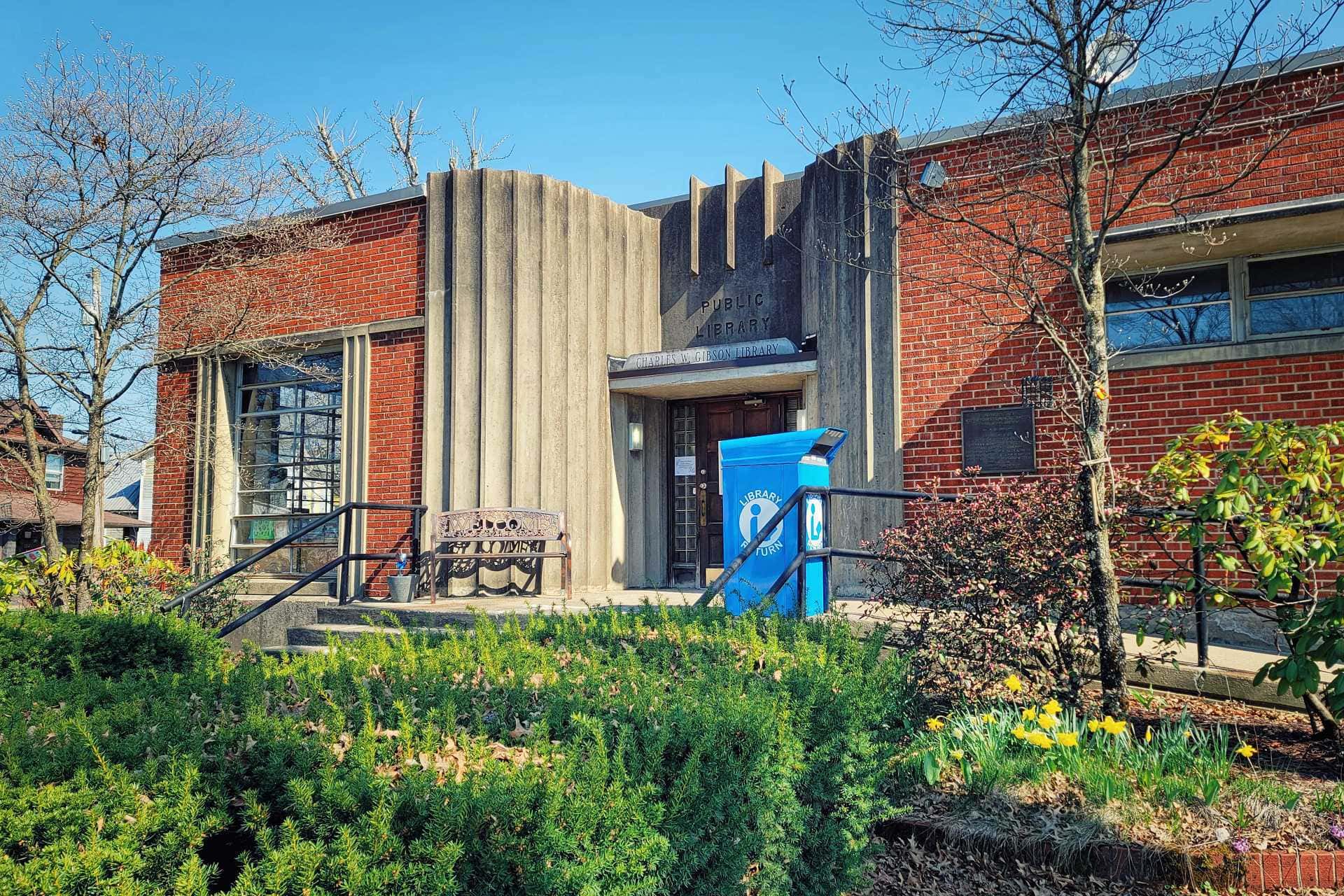BUCKHANNON – West Virginia Wesleyan College on Thursday unveiled a solar canopy that features four electric vehicle charging stations.
The college unveiled the canopy Sept. 17, next to the O’Roark Nordstrom Welcome Center.
President of West Virginia Wesleyan College Dr. Joel Thierstein said the solar canopy was made possible thanks to alumni Chip Pickering.
“Wesleyan has received support from all aspects of the energy sector,” Thierstein said. “I’m proud to share today, that thanks to a generous gift from Chip Pickering, class of 1978, the college is able to expand our solar footprint, with the opening of this solar canopy.”
This will be Wesleyan’s second solar installation after the Annie Merner Pfeiffer Library. Solar canopies are elevated structures that house solar panels and supply shade; they’re usually installed in parking lots or other paved areas.
“West Virginia Wesleyan thrives on its tradition of excellence, and ensuring that our campus is state-of-the-art is just one of the ways that we do that,” Thierstein said. “This solar canopy joins the Annie Merner Pfeiffer Library as the two entities on campus with a clean energy component.”

He said the canopy will help to reduce Wesleyan’s carbon footprint even further.
“The solar canopy has four charging stations that will help ensure Wesleyan’s clean energy footprint,” Thierstein said. “It has a solar capacity of approximately 60 kilowatts, which will help provide energy equivalent to approximately six average American homes per year. It also reduces the CO2 (carbon dioxide) emissions equivalent of the output of approximately 13 average American cars for one year.”
Keri Dunn with Pickering Energy Solutions and Appalachian Renewable Power said they began discussing the sustainability program with the college in 2017.
“After the initial discussion about the roof of the library, we began discussing the topic of a carport structure that could house car charging stations,” Dunn said. “This allows us to better communicate the need of solar energy and renewable energy in West Virginia and make it visible to all those who visit the campus.”
She said the canopy offsets carbon emissions in a manner equivalent to planting 55 acres of mature forest land and taking 13 vehicles off roadways.
“The four car charging stations are level two stations which provide about 100 miles worth of electricity in about two hours,” Dunn said. “We are very happy with this installation and visibility for the college, and we’re grateful to be a part of this program.”
Kris Warner, West Virginia State Director of USDA Rural Development, said the $15,590 Rural Energy for America Program grant for fiscal year 2020 was awarded to Pickering Energy Solutions.
“It is efforts like this one that can assure you that the Trump administration is working tirelessly to be a strong partner to rural West Virginia,” Warner said. “By building strong communities, because we know that when rural West Virginia thrives all of America thrives.”
Robert Fernatt, president of West Virginia Electric Auto Association, said the latest data he saw from the U.S. Department of Energy said West Virginia has .3 plug-in electric vehicles per 1,000 residents.
“That number may have improved somewhat in the last year or two since I’ve seen that data, but it’s nearly one-eighth of the national average,” Fernatt said. “One large factor behind that low number is the lack of charging infrastructure for electric vehicles.”
He said he was glad to see a new charging station on Wesleyan’s campus, so students, faculty and visitors can utilize and see it.
“The charging station will be a great benefit for the West Virginia Wesleyan students and faculty, and others who attend campus functions here and have electric vehicles to charge,” Fernatt said. “Because of the efficiency of electric vehicles, CO2 and other emissions are reduced, as well as the cost per mile to drive, which is much less than a gasoline-powered vehicle.”

Fernatt said he hopes this may encourage other West Virginia colleges to include electric vehicle charging stations on campus.
“There are other large schools in West Virginia without any EV charging on campus,” Fernatt said. “Our college and university teams push each other to be better at collegiate sports, and here’s hoping for some friendly competition among schools for EV charging and renewable energy. I hope that other institutions in the state will follow the lead of West Virginia Wesleyan College, and other schools that have installed EV charging and solar in the state.”




















